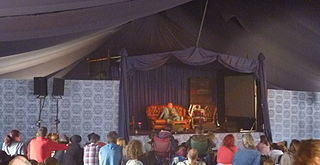A Quote by E. M. Forster
It is easy to face Death and Fate, and the things that sound so dreadful. It is on my muddles that I look back with horror--on thethings that I might have avoided.
Related Quotes
Take an old man's word; there's nothing worse than a muddle in all the world. It is easy to face Death and Fate, and the things that sound so dreadful. It is on my muddles that I look back with horror - on the things that I might have avoided. We can help one another but little. I used to think I could teach young people the whole of life, but I know better now, and all my teaching of George has come down to this: beware of muddle.
We hold death, poverty, and grief for our principal enemies; but this death, which some repute the most dreadful of all dreadful things, who does not know that others call it the only secure harbor from the storm and tempests of life, the sovereign good of nature, the sole support of liberty, and the common and sudden remedy of all evils?
There are some good things and some fantastic ones in Auden's early attitude; if the reader calls it a muddle I shall acquiesce, with the remark that the later position might be considered a more rarefied muddle. But poets rather specialize in muddles and I have no doubt which of the muddles was better for Auden's poetry: one was fertile and usable, the other decidedly is not. Auden sometimes seems to be saying with Henry Clay, "I had rather be right than poetry"; but I am not sure, then, that he is either.
It's easy to feel happy when things are going your way. The trick is to remain inspired in difficult situations. That's where life stops being a game of chance and becomes one of skill. That's when, if you can stay serene in the face of adversity, you get back on track in half the time it might otherwise take.
..the fields might fall to fallow and the birds might stop their song awhile; the growing things might die and lie in silence under snow, while through it all the cold sea wore its face of storms and death and sunken hopes...and yet unseen beneath the waves a warmer current ran that, in its time, would bring the spring.
I could've written songs about, for example, the Paris attacks as they happened and have the song out the day after, but doing this project and following the news made me realize how much I miss deeper nuances in the news reporting. There's already so many quick opinions and angles being thrown in your face, so I avoided writing about things like that and tried focusing on the smaller, more seemingly insignificant things. The things you would find in the back of the newspaper or the back of your mind.




































